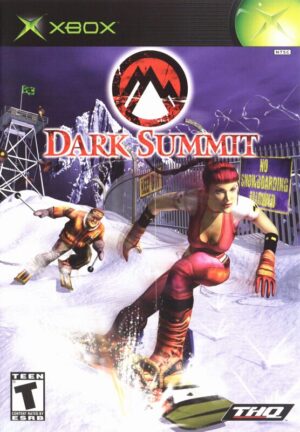Retro Replay Review
Gameplay
Doshin the Giant invites you to step into the colossal footsteps of an ancient island deity, tasking you with influencing the lives of tiny villagers below. As in the original Kyojin no Doshin 1, your primary actions involve raising and lowering the terrain with a simple gesture, sculpting mountains to provide shelter or burying settlements to assert your dominance. These core mechanics remain intact, preserving the satisfying push-and-pull dynamic between creation and destruction that made the classic title so memorable.
(HEY YOU!! We hope you enjoy! We try not to run ads. So basically, this is a very expensive hobby running this site. Please consider joining us for updates, forums, and more. Network w/ us to make some cash or friends while retro gaming, and you can win some free retro games for posting. Okay, carry on 👍)
What sets this enhanced edition apart are the subtle but impactful gameplay tweaks. A new free-roaming camera grants you complete control over your vantage point, making it easier to survey multiple villages and react swiftly when emergency fires break out or invaders threaten your flock. Meanwhile, optimized controls ensure that Doshin’s movements feel weighty yet responsive, so building a hill to protect your people never feels like a chore.
Beyond the familiar act of worship versus terror, the developers have introduced fresh zones filled with puzzles and hidden collectibles. Exploring volcanic caverns, lush jungles, and drifting ice floes adds variety to the sandbox cycle—each environment demanding a slightly different strategy. Whether coaxing your villagers into temple construction or unleashing seismic shockwaves on encroaching enemies, Doshin the Giant delivers a gameplay loop that balances tranquil stewardship with moments of towering chaos.
Graphics
This release shines most brightly in its visual overhaul. Compared to the original Nintendo 64DD outing, textures are sharper, draw distances are extended, and environmental details—from gently swaying palm fronds to the crumbling facades of destroyed huts—feel more alive than ever. Sunlight dances across the ocean’s surface, while Doshin’s skin gleams with subtle shading that hints at his divine nature.
Accompanying the graphical polish is a more robust soundscape. The ambient soundtrack shifts seamlessly from serene flute melodies during peaceful building phases to thunderous percussions whenever Doshin stamps his foot. Villager cries, crashing waves, and rustling trees are all rendered with greater clarity, enhancing the sense of immersion without ever distracting from the core experience.
Of course, some signs of age remain. Though technically more advanced, the polygon count can still feel modest by modern standards, and pop-in occasionally punctuates distant cliffs or clusters of huts. Yet these minor hiccups are nearly forgivable given the game’s overall charm—the stylized art direction and vibrant color palette work together to create a world that feels bright, inviting, and uniquely whimsical.
Story
Doshin the Giant presents a light narrative framework, leaving the bulk of storytelling to the interactions between deity and villagers. You awaken on a series of remote islands, greeted by frightened humans who do not yet know whether you are friend or foe. Your choices—nurturing their farms and raising holy monuments or unleashing destructive outbursts—shape both the land and the emerging legend of your divine character.
While there is no elaborate cutscene-driven plot, the addition of new regions in this release introduces subtle narrative beats. Ancient ruins tucked beneath dense jungles reveal carvings that hint at Doshin’s past, and hidden shrines challenge you to solve terrain-based puzzles. These breadcrumbs of lore give you a reason to explore beyond the standard worship-versus-terror cycle, creating moments of quiet discovery amid the sandbox mayhem.
Ultimately, the story is emergent rather than prescribed. The emotional resonance comes from watching villagers scramble to safety under your protective boulder or tremble in fear as you unleash a quaking stomp. For players seeking a character-driven epic, this minimalist approach may feel sparse—but for those who relish crafting their own myth, Doshin’s open-ended saga offers countless moments of wonder and unpredictability.
Overall Experience
Playing Doshin the Giant is akin to tending a living diorama, one where you wield the power to create mountains or level entire villages at will. This enhanced version builds on the foundation of Kyojin no Doshin 1 by sharpening presentation, fine-tuning controls, and expanding the world with fresh locales and a free-roaming camera. The net result is a sandbox playground that feels both familiar to returning fans and inviting to newcomers.
Replayability remains one of the game’s greatest strengths. Whether you adopt the benevolent “holy guardian” role—fostering flourishing settlements and basking in the villagers’ adoration—or embrace the darker path of fear and destruction, each playthrough yields different emergent stories. Hidden areas and environmental puzzles further reward exploration, making each island feel like a new canvas for your divine whims.
While the scope is modest compared to blockbuster titles, the unique premise and charming art style give Doshin the Giant a personality all its own. If you’re in search of a relaxed yet engaging experience where your decisions carry tangible weight, this enhanced edition is well worth your time. Just be prepared to lose hours watching the world bend to the will of its gentle (or fearsome) giant god.
 Retro Replay Retro Replay gaming reviews, news, emulation, geek stuff and more!
Retro Replay Retro Replay gaming reviews, news, emulation, geek stuff and more!




Reviews
There are no reviews yet.